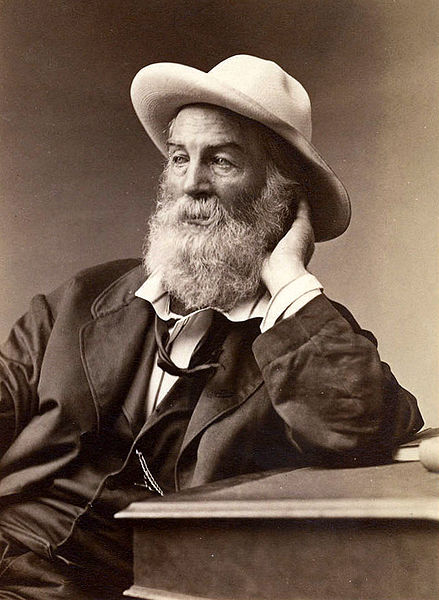Read the following excerpt from the first section of “Song of Myself” by Walt Whitman.
I celebrate myself, and sing myself,
And what I assume you shall assume,
For every atom belonging to me as good belongs to you.
I loafe and invite my soul,
I lean and loafe at my ease observing a spear of summer grass.
My tongue, every atom of my blood, form’d from this soil, this air,
Born here of parents born here from parents the same, and their parents the same,
I, now thirty-seven years old in perfect health begin,
Hoping to cease not till death.

Source: Walt Whitman 1872, G. Frank E.
Pearsall, Wikimedia
In this lesson, you discovered some of the differences between epic and lyric poetry. Poets write epic poetry to tell large-scale stories about heroes and their challenges. Poets write lyric poetry to express their own deep emotions in melodic and imaginative ways. These are not the only two forms that poets can use to express ideas or tell stories, but they are two of the oldest forms.